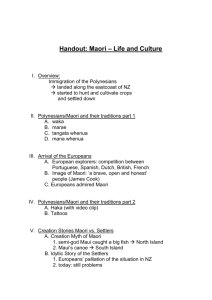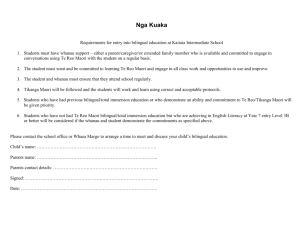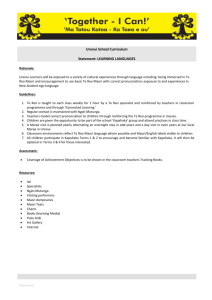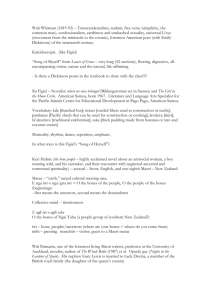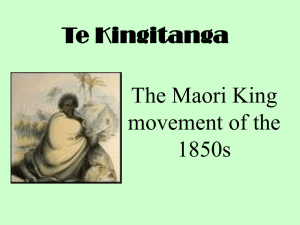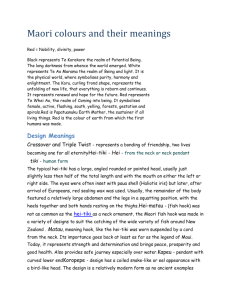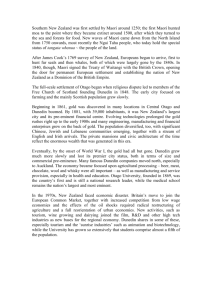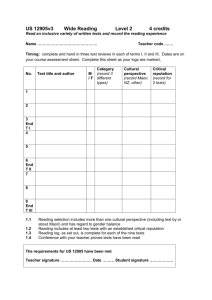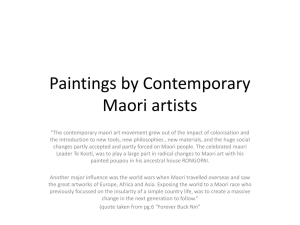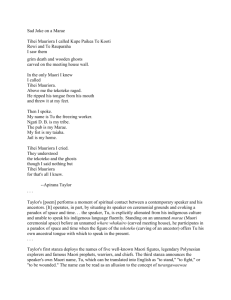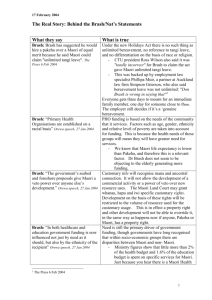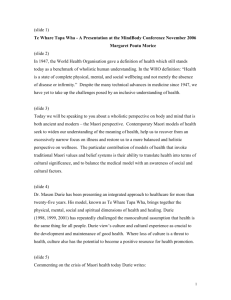Maori Wellbeing: Interventions & Teacher Competencies
advertisement
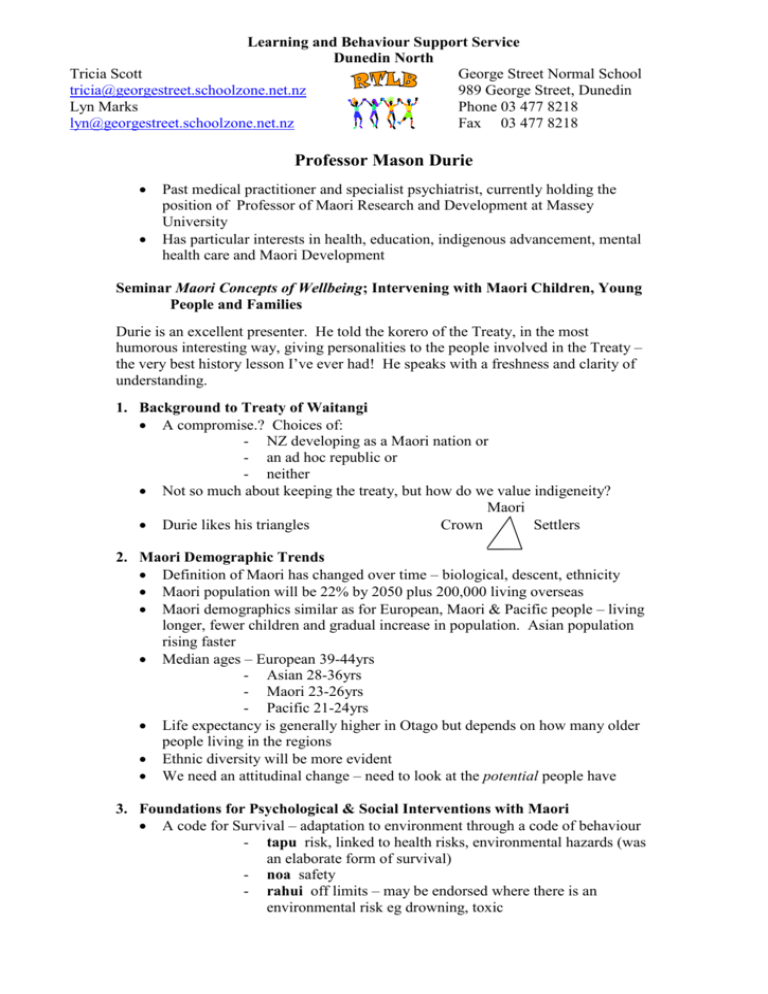
Learning and Behaviour Support Service Dunedin North Tricia Scott George Street Normal School tricia@georgestreet.schoolzone.net.nz 989 George Street, Dunedin Lyn Marks Phone 03 477 8218 lyn@georgestreet.schoolzone.net.nz Fax 03 477 8218 Professor Mason Durie Past medical practitioner and specialist psychiatrist, currently holding the position of Professor of Maori Research and Development at Massey University Has particular interests in health, education, indigenous advancement, mental health care and Maori Development Seminar Maori Concepts of Wellbeing; Intervening with Maori Children, Young People and Families Durie is an excellent presenter. He told the korero of the Treaty, in the most humorous interesting way, giving personalities to the people involved in the Treaty – the very best history lesson I’ve ever had! He speaks with a freshness and clarity of understanding. 1. Background to Treaty of Waitangi A compromise.? Choices of: - NZ developing as a Maori nation or - an ad hoc republic or - neither Not so much about keeping the treaty, but how do we value indigeneity? Maori Durie likes his triangles Crown Settlers 2. Maori Demographic Trends Definition of Maori has changed over time – biological, descent, ethnicity Maori population will be 22% by 2050 plus 200,000 living overseas Maori demographics similar as for European, Maori & Pacific people – living longer, fewer children and gradual increase in population. Asian population rising faster Median ages – European 39-44yrs - Asian 28-36yrs - Maori 23-26yrs - Pacific 21-24yrs Life expectancy is generally higher in Otago but depends on how many older people living in the regions Ethnic diversity will be more evident We need an attitudinal change – need to look at the potential people have 3. Foundations for Psychological & Social Interventions with Maori A code for Survival – adaptation to environment through a code of behaviour - tapu risk, linked to health risks, environmental hazards (was an elaborate form of survival) - noa safety - rahui off limits – may be endorsed where there is an environmental risk eg drowning, toxic These are observed on the marae, but not otherwise enforced. Health regulations & statutes have largely replaced these 4. Application to engagement in interventions Space - Distance - Non-threatening - Room to manoeuvre & negotiate Boundaries - Distinctions between groups - The living & the dead - Tangata whenua & manuhiri - Right & left - Men & women - Old & young - professional Time Ways of thinking 5. Intervention Phases Need for marae or whanau kawa (protocol) both on & off the marae to work towards the future Need evidence for outcomes from parent, teacher, student in: - Spiritual - Academic understanding - Physical health - Social relationships 6. Teacher Competencies Knowledge based: Cultural skills Cultural understandings Cultural experience Cultural bridging Theoretical underpinnings Practice principles & methods Indications & contra-indications Judgement based competencies: Weighing the evidence Critical analysis The relevance of culture to the problem The significance of ‘being Maori’ The significance of culture The significance of community attitudes & facilities The best approach to address a problem within the current context Know when you are out of your depth You can’t depend on a checklist Choose the right approach for the right situation for the right person Lyn Marks RTLB June 2008
